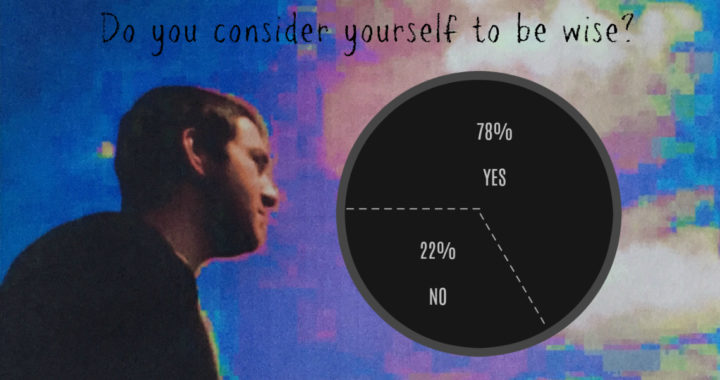To be wise is to know your strengths, work to overcome weaknesses, ask for help, and be a lifelong learner. You do not have to be the smartest or always make the right decisions, as long as you are open-minded and learn from your mistakes. –Kayleigh Stampfler
Yes I am Wise
Kayleigh is one of the seventy-eight percent of my respondents age 18-35 that checked “yes” on a survey asking if they considered themselves to be wise. However, don’t mistake this response as a lack of humility. The group is quick to clarify that there should have been a “sometimes” option to the question that simply asked them to answer “yes” or “no.” They also made it clear that their self perception is formed by a willingness to learn and be shaped by those they consider to be wise. This openness includes the ability to see wisdom coming from unexpected places like the mother who commented “Even my young children have shown wisdom in ways that surprise me. Wisdom does not belong to any age or stage in life.”
While some of my respondents equate wisdom with knowledge and education, most of those with confidence enough to call themselves wise are deeply connected to their intuition, spirit and life values. They engage in a process of self-reflection that includes learning from life experience. In addition, they have received feedback regarding their mature outlook such as: “I’ve heard from others all of my life that I’m wise beyond my years.” “People look to me for advice.” Some of these insightful comments come from individuals who have overcome early life trauma and developed a strength and resiliency that motivates them to help others.
No I am not Wise
For the thirty-two percent of my respondents who were not able to answer “yes” to being wise, most clarified again that the answer is not black and white and there should have been a “kinda” option for them to check. One respondent astutely pointed out “you can’t bestow this label on yourself, it comes from social circles” (in other words, getting feedback from others). Another remarked, “While I am wise in some areas, I’ll only check yes if I feel I’m wise in all areas of my life.”
Some attributed a lack of life experience and not having expertise on a variety of subjects as reasons they do not consider themselves to be wise. However, their ability to recognize what they don’t know actually demonstrated their evolving wisdom. I was impressed with the self-awareness that was present in these comments:
- I’m always distracted and this limits my ability to utilize all resources for true wisdom to come into fruition.
- I have moments of clarity when I do feel confident in my thoughts and actions on a higher level, but those moments are far and fleeting. I am too prone to fleeting emotions to be considered “wise.”
- I am smart, but not wise because I still do not feel as if I have found my actual purpose.
- Very much of what I think about is in the moment. I struggle to connect ideas and actions as they unfold over long periods of time, which in my view is essential to wisdom.
In my opinion, both groups of respondents demonstrated that wisdom was indeed unfolding in their lives. The main difference in the people who were able to say “Yes, I am wise,” was the presence of confidence that develops when one is told that their insights are valued and appreciated. What I am learning from reading the responses of Millennials and Gen Z is that many of them have important things to say and are taking the time to cultivate wisdom whether they know it or not. Acknowledging their wisdom is like watering a plant, the nourishment will enable its continued growth.
Where do you think my group of young adults are finding wisdom?
To read their answers click here.
To start at the beginning of the series click here.
